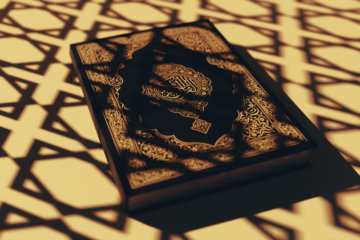Prayer holds a critical place in the Islamic faith, serving as a primary pillar and a cornerstone of a Muslim’s daily life. Through the act of prayer, Muslims connect with Allah, seeking guidance, solace, and spiritual nourishment. It plays a pivotal role in fostering discipline, mindfulness, gratitude, and a sense of community among believers.
One of the fundamental reasons prayer is of paramount importance in Islam is its role as a direct channel of communication between the believer and Allah. Muslims believe that through prayer, they can express their devotion, concerns, and gratitude to the Creator. It provides a spiritual connection that transcends the material world, offering a sense of inner peace and fulfillment. By engaging in regular prayer, Muslims reaffirm their faith and strenghten their bond with Allah, finding comfort in His presence and seeking His guidance in their daily lives.
Moreover, prayer in Islam serves as a reminder of the transient nature of life and the ultimate purpose of existence. By performing the five daily prayers at specified times, Muslims cultivate a sense of order and balance, helping believers to prioritize their spiritual well-being amidst the demands of the material world. The act of prayer serves as a constant reminder of the transient nature of life, urging individuals to focus on their ultimate goal of pleasing Allah and attaining success in the Hereafter.
Furthermore, prayer plays a vital role in fostering mindfulness and self-reflection among Muslims. The act of performing ablutions before prayer and engaging in focused remembrance of Allah during the prayer itself encourages believers to be present in the moment and to cultivate a heightened sense of awareness. Through prayer, Muslims are reminded of their dependance on Allah and encouraged to reflect on their actions, seeking forgiveness for their shortcomings and striving for self-improvement.
Additionally, prayer in Islam serves as a means of expressing gratitude for the countless blessings bestowed upon believers. Through the recitation of verses from the Qur’an and the performance of prostrations, Muslims express their thankfulness for the sustenance, guidance, and protection provided by Allah. Gratitude is a foundational aspect of Islamic teachings, and prayer serves as a physical manifestation of this gratitude, reminding believers to acknowledge and appreciate the blessings in their lives.
Lastly, prayer in Islam fosters a sense of community and unity among believers. The congregational prayers, particularly the Friday prayer, bring Muslims together in worship, transcending boundaries of race, nationality, and social status. This communal aspect of prayer reinforces the idea of the Ummah, or the global Muslim community, emphasizing the importance of solidarity, compassion, and support among believers.
In conclusion, the importance of prayer in Islam cannot be overstated. It serves as a spiritual anchor, a source of discipline and mindfulness, a means of expressing gratitude, and a catalyst for community cohesion. Through prayer, Muslims seek to deepen their relationship with Allah, cultivate inner peace, and strive for personal and spiritual growth. In a world filled with distractions and challenges, the act of prayer offers believers a sanctuary of peace, reflection, and connection with the Divine.
So, what’s your favorite du’a?
Categories: Quotes and Reflections



0 Comments